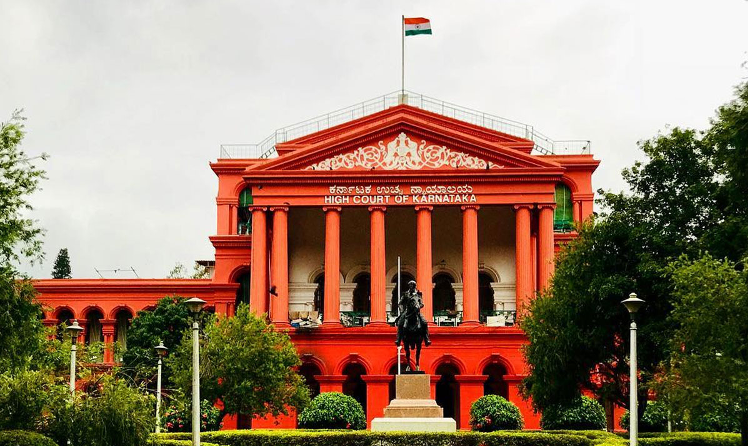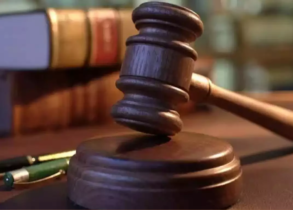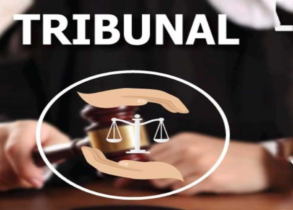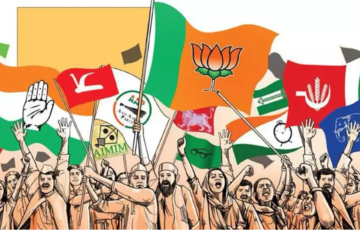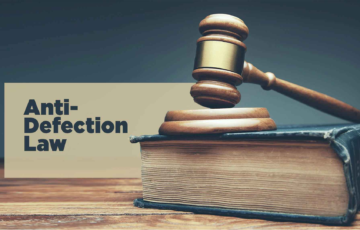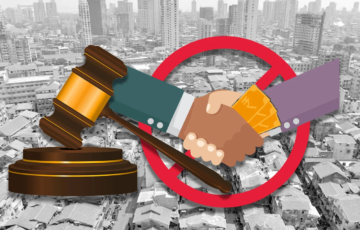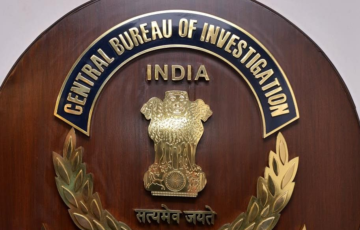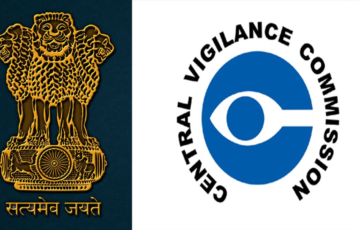HIGH COURT
Introduction
- In India, the high courts are an essential part of the judicial system, situated below the Supreme Court but above the subordinate courts. Each state has its own high court, and there are a few common high courts serving multiple states or union territories. The Parliament can adjust their jurisdictions. In 2019, there were 25 high courts, with Delhi having a separate one, and Jammu and Kashmir and Ladakh sharing a common high court. The Indian Constitution outlines the organization, independence, jurisdiction, and powers of high courts in Articles 214 to 231 of Part VI.
Composition
- Each high court, whether exclusive to a state or shared among multiple states, is comprised of a chief justice and additional judges appointed by the president as required. The Constitution doesn’t specify a fixed number of judges for a high court, giving the president the authority to adjust the court’s size based on its workload as needed.
Qualification
- To qualify for the position of a High Court Judge in India, an individual must meet the following requirements:
- They must be a citizen of India.
- They should have either:
- Held a judicial office in the territory of India for a period of ten years; or
- Been an advocate in a High Court (or High Courts in succession) for a period of ten years.
- Notably, the Indian Constitution does not specify a minimum age requirement for the appointment of a High Court Judge. Additionally, unlike the appointment of a distinguished jurist as a Judge of the Supreme Court, the Constitution does not have provisions for appointing a distinguished jurist as a High Court Judge
Oath
- Before assuming office, a High Court Judge in India takes an oath, pledging to:
- Uphold the Constitution.
- Safeguard India’s sovereignty and integrity.
- Perform duties impartially and diligently.
- Uphold the Constitution and laws.
Salary
- The salaries, allowances, privileges, leave, and pensions of High Court Judges are determined by the Parliament, and these terms cannot be changed to their disadvantage after their appointment except during a financial emergency. They also receive additional allowances and various facilities such as free accommodation, medical services, cars, and telephone usage. Retired Chief Justices and Judges are entitled to a monthly pension, which is 50% of their last drawn salary.
Appointment of Judges
- High Court Judges are appointed by the President. However, when appointing Judges other than the Chief Justice, the President is required to consult the Chief Justice of India, the State Governor, and the High Court’s Chief Justice. Furthermore, under Article 222, the President, in consultation with the Chief Justice of India, has the authority to transfer High Court Judges.
Tenure of Judges
- The Constitution of India does not set a fixed tenure for a High Court Judge, but it outlines four provisions regarding their service:
- A High Court Judge serves in office until reaching the age of 62. Any questions about their age are decided by the President after consulting with the Chief Justice of India, and the President’s decision is final.
- A Judge can choose to resign from their office by submitting a written resignation to the President.
- Removal from office can occur if the President acts on the Parliament’s recommendation.
- A Judge vacates their office upon appointment as a Supreme Court Judge or when transferred to another High Court.
Removal
- A High Court Judge can be removed from office by a Presidential order, but this action can only occur after Parliament has presented an address for such removal in the same session. The address must be supported by a special majority in each House of Parliament, which means a majority of the total membership of that House and a majority of not less than two-thirds of the members of that House who are present and voting.
- The grounds for removal are limited to two reasons:
- proved misbehavior or
- This process for removing a High Court Judge is the same as that for a Supreme Court Judge.
Transfer
- The President has the authority to transfer a High Court Judge from one high court to another, after consulting with the Chief Justice of India. Upon transfer, the Judge is entitled to receive additional compensatory allowance as determined by Parliament.
- In 1977, the Supreme Court emphasized that transferring High Court Judges should be an exceptional measure taken in the public interest, rather than as a form of punishment. Subsequently, in 1994, the Supreme Court highlighted the need for judicial review to prevent arbitrary transfers, although only the Judge being transferred can challenge the decision.
- In the Third Judges case in 1998, the Supreme Court established that, in the case of transferring High Court Judges, the Chief Justice of India should consult not only with a collegium of the four most senior judges of the Supreme Court but also with the Chief Justices of the two relevant high courts (the one from which the Judge is transferred and the one receiving the Judge). Therefore, the opinion of the Chief Justice of India alone does not constitute the entire “consultation” process.
Acting, Additional and Retired Judges
Acting Chief Justice
- The President has the authority to appoint a High Court Judge as an acting Chief Justice of the High Court in the following situations:
- When the office of the Chief Justice of the High Court is vacant.
- When the Chief Justice of the High Court is temporarily absent.
- When the Chief Justice of the High Court is unable to perform the duties of their office.
Additional and Acting Judges
- The President has the authority to appoint qualified individuals as additional judges of a High Court for a temporary period of up to two years under the following circumstances:
- When there is a temporary increase in the High Court’s workload.
- When there are arrears of work in the High Court.
- The President can also appoint a qualified person as an acting judge of a High Court when a Judge of that High Court (excluding the Chief Justice) is:
- Unable to carry out their duties due to absence or other reasons.
- Appointed to act temporarily as the Chief Justice of that High Court.
- An acting judge serves until the permanent Judge resumes their duties. However, both additional and acting judges cannot continue in office beyond the age of 62 years.
Retired Judges
- The Chief Justice of a state’s High Court can, at any time, request a retired Judge from that High Court or any other High Court to serve as a Judge of the High Court for a temporary period. However, this can only be done with the prior consent of both the President and the person being appointed. The appointed Judge is entitled to allowances as determined by the President and possesses the same jurisdiction, powers, and privileges as a regular High Court Judge. Nevertheless, they will not be considered a permanent Judge of that High Court.
Jurisdiction and Powers of the High Courts
- Territorial Jurisdiction:
- High Courts’ jurisdiction typically covers the entire territory of a state.
- Parliament can establish High Courts for multiple states or extend jurisdiction to Union Territories, broadening their territorial authority.
- Original Jurisdiction:
- High Courts of Presidency Towns have both original and appellate jurisdictions.
- Other High Courts mainly have appellate jurisdiction.
- Original jurisdiction is limited to specific matters like admiralty, probate, matrimonial, and contempt of court.
- Original criminal jurisdiction was taken away by the Criminal Procedure Code of 1973, remaining in civil cases above a certain threshold.
- Appellate Jurisdiction:
- High Courts serve as appellate courts, hearing appeals in both civil and criminal cases from their lower courts and original side.
- Intra-court appeals are allowed in various High Courts, enabling appeals from a single judge’s decision to a division bench within the same High Court.
- High Courts generally do not have jurisdiction over military service tribunals.
- Writ Jurisdiction:
- High Courts possess the authority to issue directions, orders, or writs for upholding Fundamental Rights and other purposes, as provided in Article 226 of the Constitution.
- Administrative and Supervisory functions of the High Courts:
- Article 229 grants High Courts complete control over their staff members. The Chief Justice of a High Court has the authority to appoint officers and personnel for the Court, regulate their working conditions, and terminate staff members.
- High Courts serve as the highest authority in a state’s judicial system. They have the right of superintendence and control over all subordinate courts in both judicial and administrative matters, as per Article 227.
- Court of Record for Subordinate Courts
- High Court decisions are binding on lower courts. Subordinate courts are required to follow their procedures and decisions. The High Court can penalize those who do not comply with its orders, including those from subordinate courts, and has the authority to review their records.
- Superintendence:
- With the exception of cases related to the Armed Forces, every High Court has the power to supervise all courts and tribunals within its territorial jurisdiction. The High Court monitors and administers the operations of these courts and tribunals, establishing rules and regulations for their conduct.
Difference between High Court and Supreme Court
| Aspect | High Court | Supreme Court |
| Hierarchy | State-level, jurisdiction within a specific state or union territory. | National-level, jurisdiction over the entire country. |
| Appellate vs. Original Jurisdiction | Primarily appellate jurisdiction, with some High Courts having original jurisdiction in specific cases. | Both appellate and original jurisdiction, with the authority to handle constitutional and national matters. |
| Types of Cases Heard | Civil and criminal cases, state law issues, and matters within their jurisdiction. | A broader range of cases, including constitutional, inter-state, and cases of national importance. |
| Authority
|
Over their respective states or union territories, with control over subordinate courts. | Final appellate authority for the entire country, with decisions binding on all Indian courts and authorities. |
| Number
|
Multiple High Courts across India, with each state/union territory having its own High Court. | Single Supreme Court, located in New Delhi.
|
| Appointment of Judges
|
Appointed by the President of India in consultation with the Chief Justice of India and the respective state’s Governor. | Appointed by the President of India in consultation with the Chief Justice of India and a collegium of senior Supreme Court judges. |
| Judicial Review
|
Can exercise judicial review within their jurisdiction, ensuring the legality of governmental actions. | Has ultimate authority for judicial review, with the ability to review governmental actions at both the state and national levels. |
UPSC PREVIOUS YEAR QUESTIONS
1. With reference to the Constitution of India, consider the following statements: (2019)
1. No High Court shall have the jurisdiction to declare any central law to be constitutionally invalid.
2. An amendment to the Constitution of India cannot be called into question by the Supreme Court of India.
Which of the statements given above is/are correct?
(a) 1 only
(b) 2 only
(c) Both 1 and 2
(d) Neither 1 nor 2
2. With reference to Indian judiciary, consider the following statements: (2021)
1. Any retired judge of the Supreme Court of India can be called back to sit and act as a Supreme Court judge by the Chief Justice of India with prior permission of the President of India.
2. A High Court in India has the power to review its own judgement as the Supreme Court does.
Which of the statements given above is/are correct?
(a) 1 only
(b) 2 only
(c) Both 1 and 2
(d) Neither 1 nor 2

